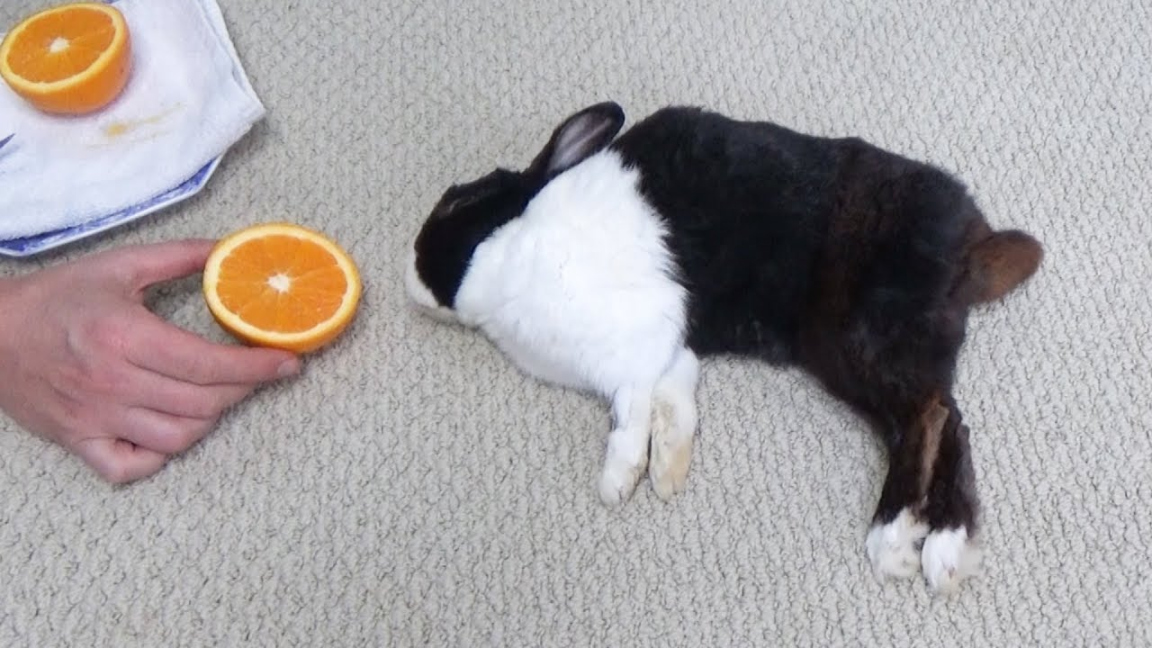Can Rabbits Eat Oranges?
Rabbits are herbivores with a delicate digestive system, so it’s important to be cautious about what they eat. While rabbits generally thrive on a diet of fresh hay, vegetables, and pellets, many rabbit owners wonder if they can feed oranges to their furry friends. Oranges are a popular fruit, packed with vitamin C and other essential nutrients. However, it’s important to consider the potential risks and benefits before introducing oranges into your rabbit’s diet.

The Benefits of Oranges for Rabbits
Oranges are known for their high vitamin C content, which is essential for maintaining a healthy immune system in rabbits. Including small amounts of oranges in your rabbit’s diet can help prevent scurvy, a common vitamin C deficiency that can lead to health problems. Additionally, oranges are a good source of hydration for rabbits, as they contain a high water content.
The Risks of Feeding Oranges to Rabbits
While oranges can offer some benefits to rabbits, there are also potential risks that need to be considered. One of the main concerns is the high sugar content of oranges. Rabbits have a sensitive digestive system that is not well-suited to processing large amounts of sugar. Feeding them too much orange can lead to gastrointestinal problems such as diarrhea or bloating.
Furthermore, oranges are also acidic in nature. This acidity can upset a rabbit’s stomach and potentially cause digestive issues. Overconsumption of oranges can also lead to weight gain and obesity in rabbits, as the high sugar content can contribute to excessive calorie intake. It’s crucial to monitor the number of oranges your rabbit consumes to avoid these potential health problems.
How to Safely Feed Oranges to Your Rabbit
If you decide to offer oranges as an occasional treat for your rabbit, it’s crucial to do so in a safe and controlled manner:
- Start by introducing a small piece of orange to your rabbit’s diet.
- Observe your rabbit closely for any signs of digestive discomfort or adverse reactions. If your rabbit develops diarrhea or exhibits any other unusual symptoms, discontinue feeding oranges immediately.
- Limit the amount of orange to a small slice or segment. Feeding too much orange at once can overwhelm your rabbit’s digestive system.
- Remove any uneaten orange from your rabbit’s enclosure after a couple of hours to prevent spoilage.
- Always ensure that the orange is fresh and free from any pesticides or other harmful chemicals.
Other Fruits Suitable for Rabbits
While oranges can be fed to rabbits in moderation, there are other fruits that may be safer and more beneficial for them:
- Apples: Remove the seeds and core before offering a small slice of apple to your rabbit. Apples are a good source of fiber and vitamins.
- Berries: Strawberries, blueberries, and raspberries are all safe for rabbits and are packed with antioxidants.
- Watermelon: Remove the seeds and rind, then offer small pieces of watermelon as a refreshing treat.
- Pineapple: This tropical fruit can be given to rabbits in small quantities, as it contains enzymes that aid digestion.
Feeding oranges to rabbits should always be done in moderation and as an occasional treat, rather than a regular part of their diet. – Dr. Jane Doe, Veterinarian
Frequently Asked Questions (FAQs)
1. Can rabbits eat orange peels?
No, it is not recommended to feed orange peels to rabbits. The peels are tough and difficult for rabbits to digest, potentially leading to digestive issues.
2. How often can I feed oranges to my rabbit?
Oranges should only be fed to rabbits as an occasional treat, no more than once or twice a week. It’s important to monitor their reaction and digestive health.
3. Can rabbits eat orange juice?
No, it is not advisable to give rabbits orange juice. Juice lacks the necessary fiber and can be too concentrated in sugars for a rabbit’s digestive system.
4. Are mandarins safe for rabbits to eat?
While mandarins are similar to oranges, they have a milder flavor and lower acidity. However, they still contain high levels of sugar, so they should also be given in moderation and as an occasional treat.
Remember, a rabbit’s diet should primarily consist of fresh hay, vegetables, and high-quality pellets. Consult with a veterinarian for personalized advice on your rabbit’s nutritional needs.
Related Articles…
Copyright Notice:
The images displayed here are sourced from the internet, with copyrights held by respective owners. For removal of any copyrighted image, please email us.